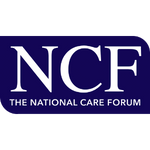The Coalition of Frontline Care for People Nearing the End of Life welcomes the publication of the Palliative and End of life care Commission report.
We share the Commission’s desire for urgent improvement in the quality and availability of care for people nearing the end of their life. We were pleased to have had the opportunity to contribute by providing oral and written evidence, as well as submitting our report, End of Life Care is Everyone’s Business. Though much of the Commission’s report focused on specialist palliative care, the importance of the generalist health and social care workforce was highlighted as vital to any future National Strategy.
The need for quality training and support for health and social care staff at all levels was emphasised as a key means of improving care and preventing emergency admissions. Mandatory undergraduate palliative care training for all health and social care staff was recommended from Sept 2026. The benefits of early identification were noted, and advance care planning discussions with patients and families to plan future care were affirmed, with training in communication skills recommended. We were also pleased to see the report’s focus on the importance of collaboration with other specialists, including experts in older people’s healthcare (geriatric medicine), in the report. A proposal for accessible evidence from both health and social care professionals via an Impact Centre (a ‘what works’ point of contact), was also welcomed.
The Coalition of Frontline Care represents the frontline generalist workforce in health and social care, including over 3 million staff in care homes, domiciliary care, primary care, acute and community hospitals, and retirement communities. Together, this workforce provides the majority (approx. 90%) of frontline care for people nearing the end of life in the UK. We advocate a radical transformational shift in care for people nearing the end of life, the majority of whom live and die with age-related conditions, such as frailty and dementia, along with multiple other long-term conditions. Therefore, if good quality end of life care is to be the norm in our country, we affirm the need for a ‘both/and’ approach, including investment in both generalists and specialists in end-of-life care. To achieve its ‘home first’ approach and shift care from hospitals to the community, the Government must properly resource the support and training of the frontline generalist workforce. As outlined in our Exec Summary Key Asks, we call for greater recognition of and investment in the frontline generalist workforce, as well as investment in specialist palliative care and specialists in older people’s healthcare.
Many of the Commission’s recommendations are aligned with the Coalition’s messages, but we hope the vital roles of frontline generalist providers and experts in older people’s healthcare are more strongly emphasised in the final two volumes of the report. With the UK’s ageing population and more people living longer with age-related conditions, it must be recognised that generalist health and social care staff provide the majority of care for those nearing the end of life. The Government’s 10-Year Health Plan must address the need for investment in training and support for the three million committed frontline staff providing hands-on end of life care for most people nearing the end of life in this country.





